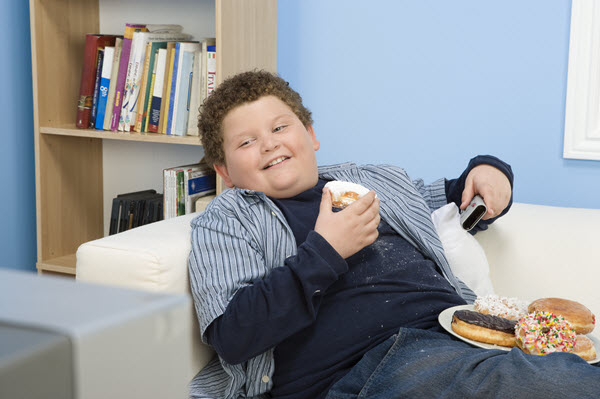A Parent’s Guide to Healthy Eating During the Holidays
By Ryan Ayers
November 1, 2019 • Fact checked by Dumb Little Man

Adults aren’t the only ones who have to worry about growing festively plump during the holidays. People, including kids, typically gain 1 to 2 pounds over Thanksgiving, Christmas, and New Year’s Day.
You can commit to losing weight after the holidays or, better yet, not gain it in the first place. By committing to healthy holiday eating, your family can avoid the 5 to 10-pound weight gain that most people experience every five years.
Obesity Is a Growing Problem for American Kids

Obesity among kids has jumped from a little over 6% in the '70s to over 20% in relatively recent years. This outcome is especially problematic because overweight children face cyber-bullying, lowered self-esteem, and chronic health issues.
Furthermore, children who are obese are more likely to remain so through adulthood. This makes them face additional risks such as cancer, diabetes, and heart disease. For parents, it can prove challenging to figure out what to do about the problem.
Sometimes, children grow obese due to an eating disorder and lack of physical activity. However, environment, genetics, metabolism, and poor sleep habits can also promote excessive weight gain. In some households, easy access to candy, snacks, and other food items with empty calories can make it harder to maintain a healthy weight.
Together, parents and physicians can develop safe interventions to prevent obesity among family members. Furthermore, the best way that parents can prevent childhood obesity is to lead by example, which means staying active and eating healthy.
Healthy Eating Tips for Kids During The Holidays

During the holiday, parents can deploy a few tips and tricks to keep kids from gaining extra weight, starting with balance and moderation. For instance, if you're hosting a family gathering, you can pair kids up with partners to share holiday staples that are high in sugar, calories, and fat.
This way, you won’t deprive your children of their holiday favorites. They’ll consume fewer empty calories by splitting shared portions.
Limit the availability of sugary holiday beverages, such as hot cocoa and eggnog. Also, keep plenty of cold water around for friends and family members. It’s a good idea to fill a cooler with ice and make a case or two available so that everyone can access water easily.
Finally, stay active! Plan activities that involve going outside, enjoying the cold weather, and moving around. Cold air curves appetites and boosts energy.
Additionally, plan rest periods for the entire family. People tend to eat to compensate for feelings of tiredness. A rest period can consist of watching a holiday movie or another activity that doesn’t require substantial exertion.
Most of all, strike a balance between epicurean festivity and healthiness. Some holiday food staples are a must but substitute food items and ingredients that are lower in calories, fat, and sugar as much as possible.
Obesity in the United States: A Kid's Point of View
If you're not careful, your passionate pleas for healthy eating can send the wrong message to your child. Today, children are sensitive about their weight. The proliferation of media messages made possible by the internet has compelled schoolgirls as young as six years old to start expressing concern about body image and weight.
The way that you talk to your children about their weight can have lifelong implications. To start, remember that it's a two-way conversation. Also, you’re a step ahead if your child starts the discussion.
If they do, allow them to share their thoughts about the issue whenever they desire. During talks about weight, acknowledge your child’s feelings about the topic.
If you struggled with weight in the past, it helps to share that experience with your child. Also, your child must understand that you love them no matter what their size is.
Whatever you do, avoid judging and negative comments. This kind of language can have a harmful and lasting emotional effect on your child.
Finally, move the conversation beyond talk – take action. Kids learn by example, so show them how to eat healthily and stay active by doing the same.
Parents must protect their children from a host of threats, from food allergies to excessive internet content. Weight gain is an additional threat that can negatively affect the welfare of your child.
When taking steps such as changing family eating habits to ensure the welfare of your loved ones, it’s always a good idea to consult with your family physician and pediatrician. Furthermore, try not to make radical changes in the family diet.
Start with a plan and make small changes until you reach your goal. This list of healthy eating tips for kids can help you.
And remember, every family is different. Change takes time, so remain observant, patient, and positive.

